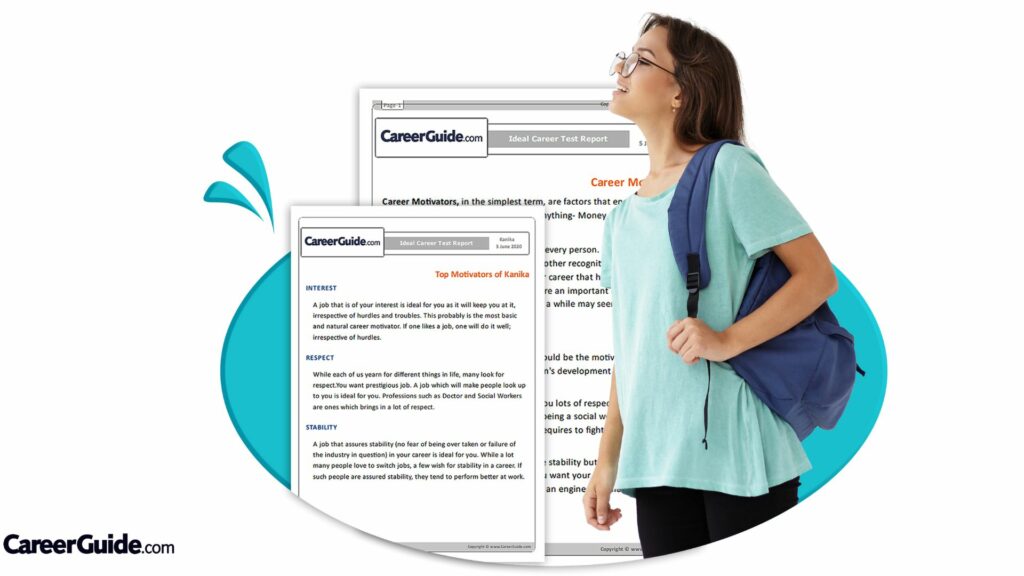Employers use aptitude tests to measure a candidate’s talents using a range of different testing styles. Aptitude tests measure your ability to complete tasks and respond to situations in the workplace. This comprises, among other things, problem-solving, prioritization, and math skills. The psychometric tests are multiple-choice, with just one correct response; your score is then recorded, and your level is compared to that of other test-takers. Here is everything you need to know about aptitude test.
You can take free online tests to get a sense of the types of questions you’ll be asked on an aptitude exam. In today’s workplace, companies usually conduct many interview stages to ensure that the candidate they employ is the best fit for the job. Aptitude refers to an individual’s natural abilities or predispositions to learn certain skills or perform certain tasks. It is often thought of as a measure of innate talent or potential, as opposed to acquired knowledge or experience. Aptitude tests are assessments that measure an individual’s innate abilities in various areas
Aptitude tests are commonly used in the context of employment selection, as they can provide insight into an individual’s potential to perform well in certain roles or industries. However, it is important to consider that aptitude tests are just one aspect of the hiring process and should not be used as the sole basis for making employment decisions. Other factors, such as work experience and references, should also be considered.
What Is an Aptitude Test?
An aptitude test is a test that determines a person’s ability or proclivity to excel in a specific activity. Individuals are assumed to have intrinsic talents and weaknesses, as well as a natural predisposition toward success or failure in various areas based on their innate features, according to aptitude tests. An aptitude test does not assess knowledge or IQ; rather, it assesses a specific skill or proclivity.
What is the purpose of an aptitude test, and how do you take one?
Aptitude tests are an excellent technique for a hiring manager to assess a candidate’s suitability for a specific position. They’re a technique for assessing how candidates would handle the obstacles of the job they’re applying for. Aptitude exams are normally administered via an online platform, however certain companies may invite you to take them in person. This is dependent on their hiring procedures. Individuals might take an aptitude test to see what kinds of jobs would be a good fit for their abilities and interests. Similarly, High school students may take an aptitude test to discover which college degree is best for them or whether college is the best option.
A variety of aptitude tests are available
A company can give a variety of aptitude tests to job prospects.
- Diagrammatic Reasoning – Uses diagrams and flowcharts to assess your ability to reason logically.
- Numerical Reasoning – This section assesses your math skills by using percentages, averages, and other calculations.
- Verbal Reasoning – This section assesses your ability to evaluate verbal logic.
- Inductive Reasoning – A pressured atmosphere is used to test your abilities to spot patterns and analyze facts.
- Situational Judgement — This exercise puts your problem-solving skills to the test.
- Logical Reasoning – The capacity to perceive patterns, sequences, and links among shapes and pictures is tested in this area.
- Abstract Reasoning – These tests are similar to IQ tests in that they examine general knowledge as well as your ability to apply what you’ve learned in new contexts.
What is the type of Questions asked in aptitude tests?
The types of questions you’ll be asked in an aptitude exam will differ depending on the position you’re applying for. At the end of a series, they can ask you to identify a missing number, shape, or image, or they might give you a written scenario to answer questions from. True, false, and can’t say are the answer options on verbal reasoning tests. The questions are designed to evaluate your ability to assimilate information fast, whether they are mathematical or problem-solving-related. This is beneficial for recruiting managers seeking data analysts at all levels.
How to Getting ready for an aptitude test
If you know you’ll be taking an aptitude test, the greatest advice we can give you is to prepare ahead of time. Inquire with your recruiter or the company you’re interviewing with about the type of aptitude test you’ll be taking, and then practice it online. It’s impossible to predict what questions you’ll be asked throughout the testing process; however, we feel that if you familiarize yourself with the types of questions you’ll be asked, as well as the time limits, you’ll be well prepared to ace your aptitude exam and land your dream job.
If you’re interviewing for a job, check out our job interview tips area on our website, where our recruitment consultants have provided expert advice based on their experience to assist you in your job hunt. Alternatively, contact one of our expert recruitment experts right away. Ideal career tests, humanities career selector tests, engineering branch selector tests, commerce branch selector tests, and professional skill index assessments for working professionals are just a few of the psychometric tests available at CareerGuide. These psychometric tests are designed to identify your genuine abilities and capabilities so that you may choose the best career path for you.
Engineering stream selector
Which engineering branch should you choose now that you’ve decided to be an engineer? Over 200 different engineering branches have been approved by the AICTE, which are divided into 34 major engineering branches. Students tend to hunt for answers in all the wrong places when they are confused. Students contact their parents, relatives, friends, or school teachers, who may or may not be aware of current events or potential work opportunities; also, student counsellors at specific institutes are overburdened with questions and other concerns. Others may seek answers on the internet; this is a medium for those who are knowledgeable but require a little clarification, as an abundance of information might further confuse a pupil.
The Psychometric Assessment, Engineering Branch Selector exam report provides a summary of all of the major Engineering Branches. With the help of this report, you will be able to determine which branch of engineering you should pursue. This report aids in the matching of your work interests with particular real-life work situations in several engineering branches. It’s been scientifically designed, formulated, and personalized just for you. It gives you a personalized preference analysis of various engineering fields.
Educator’s professional skill index test
The Educator’s Professional Skill Index is a psychometric Assessment that has been scientifically validated for the job and duties of a teacher. The Educator’s Professional Skill Index can be utilized at educational institutions for hiring, training, and self-development for teachers in both entry-level and experienced jobs, with 0-2 years of experience. Primary, secondary, and high school instructors are among the key characteristics for whom the test is appropriate.












